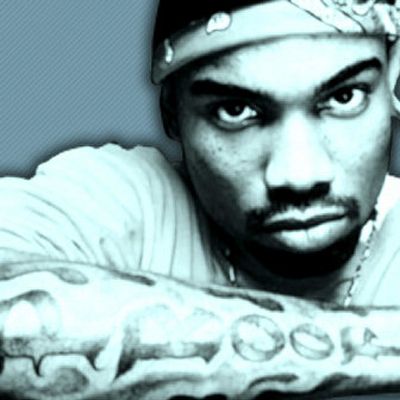That’s a Rap

He felt obligated to “the streets,” friends say, so Proof stayed close to give back what he owed – and paid with his life.
The killing of Eminem’s right-hand man last week highlights the paradoxical set of issues that bolster rappers’ careers while putting their lives in danger.
The result has been a nearly 20-year series of rap murders that underscores the increasingly perilous state of young black men in America.
Proof, born 32 years ago as Deshaun Holton, earned wealth, fame, a spacious suburban home and his own recording studio as Eminem’s sidekick and a member of the platinum-selling group D12.
Yet after an argument inside a seedy Detroit after-hours club early Tuesday morning, police say, Proof fired the first shot in a gun battle that left him dead.
Proof’s friends say his allegiance to the ghettos of his hometown – and his willingness to confront dangerous situations – grew even as his success afforded him other options.
“These guys have to be out there, in some of the worst and wildest places,” says Detroit entertainment executive Mark Hicks, who once managed Proof and D12. “That’s where their hard-core audience is.
“Most of the guys who are hot resonate in the streets. And it’s also where they will run into a lot of trouble. So in rap, just doing what it takes to be well-known puts you at risk.”
Proof joins a long list of rap stars, including Run DMC’s Jam Master Jay (killed in 2002 in a Queens recording studio) and Scott La Rock (whose 1987 murder in the Bronx was the first high-profile rap slaying), to die in their own communities.
And of course there are the twin patron saints of slain rappers: Tupac Shakur, who was famously doomed by his fascination with “thug life,” and his counterpart Notorious B.I.G.
Many wonder why rappers can’t simply use their wealth to insulate themselves – as athletes often do – from the violence and bloodshed that too often mark their communities.
But Khnum Muata Ibomu, known as Stic.man of the rap duo dead prez, says rappers’ success can’t protect them.
“Money and notoriety don’t shield you from violence,” he says. “When you have resources and you live in a community like Detroit, where people don’t have much, it makes you a target.
“It makes you a target for your resources, of envy. It makes you a victim of your own ego, and your own need to feel important and appreciated because we live in oppressed conditions. Like Puffy says, ‘Mo’ money, mo’ problems.’ “
Davey D, a California-based radio personality and journalist, says that while money may change some rappers’ material conditions, it often does nothing to transform their mindsets.
“You can still be a million-dollar thug,” he says. “And it doesn’t insulate you if you decide to go back to your old neighborhood and places you grew up.
“If you’re looking at D12, the perception might be that they have sold lots of records and they don’t need to be on Eight Mile (Road). But when you don’t, they consider you somebody who has sold out.”
Many rappers also feel a sense of bravado – a need to prove that despite their wealth and success, they’re unafraid to confront the conflicts and complications that face their brethren.
“There is a certain honor associated with not backing down, which will contribute to escalating certain situations that people who don’t have that image to uphold might sidestep,” says sociologist Michael Hunt, director of the Ralph Bunche Center for African-American Studies at the University of California, Los Angeles.
“If your image is predicated on boldness, on in-your-face lyrics, if you’re in a situation like that, and it gets out that you did back down, it doesn’t help your sales and your image,” he says.
But rappers and their audiences don’t bear all the blame, say Hunt and others, pointing to a music industry that encourages rappers to “keep it real.”
Stic.man believes that this is, at least in part, why young black athletes haven’t suffered the same brutal fates as their music contemporaries.
“Many of us rappers are trapped within the stereotypes and images projected and sensationalized by the media,” he says. “We find ourselves trying to live these wild-cowboys ideas. Our concept of manhood is taught on a street level.”
Adds Stic.man’s partner, M1: “Proof gave back. He was part of his community. He didn’t deserve to die.
“The problem isn’t that he was at a club. The problem might be that the people at the club didn’t know what he represented.”
“He had a beautiful home, a nice studio and a wonderful family,” says Hicks, his former manager.
“But he couldn’t just stay home and not be seen. Proof was a people person, and the streets won’t love you if they don’t see you. You have to be a field general. You gotta be out there.”